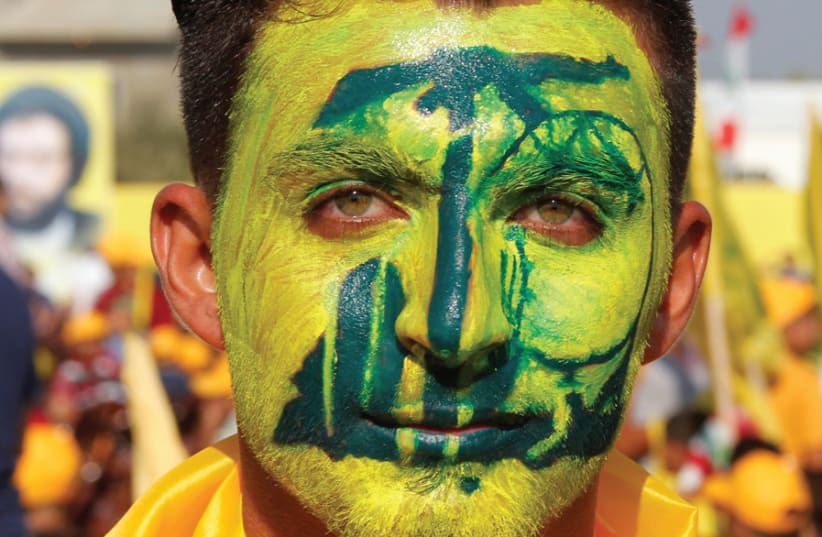Hezbollah, which is seen as a terrorist group by several countries and which has a political party in Lebanon’s parliament, finally handed over drones it said had crashed this week. Hezbollah and Lebanese politicians have blamed Israel for using the drones, but Hezbollah kept them for a week acting as if it was the central Lebanese authorities, as opposed to handing them over the army or other parts of Lebanon’s government. The drones were allegedly downed on Sunday morning and the five days it took Hezbollah to hand them over raises questions about who actually runs Lebanon.
According to Reuters “Lebanon’s Hezbollah group on Friday handed over two drones that crashed in Beirut to the Lebanese army.” The article notes that the drones “went down on Sunday,” and that Hezbollah says they were Israeli.
What happened to the drones and fragments of them from Sunday until Friday while Hezbollah took photos of them, put them on display, talked about them and exhibited them. There was no semblance of an investigation or forensics or national security teams handling them. There were no air crash investigators on hand to take samples of them and the debris. Nevertheless media reports were full of stories about how “Hezbollah experts” had examined the drones on Monday, August 26. Hezbollah experts apparently concluded that one drone carried exactly 5.5 kilograms of C4 explosives. Hezbollah knows a lot about explosives because they have been implicated in bombings for years, including the assassination of former Lebanon Prime Minister Rafic Hariri.
Hezbollah held on to the drones while Hezbollah leader Hassan Nasrallah gave a speech earlier this week on August 25. The Times in London reported on August 28 that the drones “targeted crates believed to contain machinery to mix high-grade propellant for precision missiles.” The report was based on intelligence sources. Israel released information on Hezbollah’s precision missile production process on August 29.
Despite the government not investigating the drones, and Hezbollah acting as if it was the main authorities in dealing with Lebanon’s airspace and drones, Lebanese Prime Minister Saad Hariri said on August 25 that the drones were a “new aggression” and a threat to regional stability. Lebanese President Michel Aoun, also acting without an investigation or the drones even being in the hands of the authorities, said they represented a “declaration of war.” He said the same thing to UN special coordinator for Lebanon Jan Kubis.
The sloth-like pace with which Hezbollah dealt with the drones, matched by the speed with which the government leaders all blamed Israel and parroted Hezbollah’s line, illustrate the long way Hezbollah has come to be recognized not even as a faction but as a kind of governing authority. That it held on to drones for days while Lebanese officials talked of war and aggression, without having had basic transparency and an investigation, shows the challenges Lebanon faces. It is a challenge that is well known to critics of the role of Hezbollah in Lebanon, but the drone story illustrates and pinpoints it.
